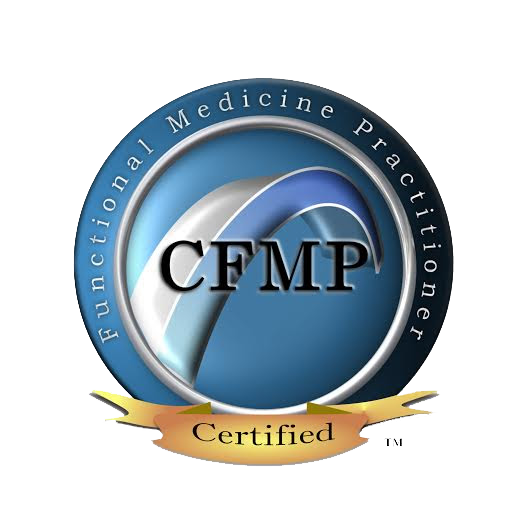
Iodine for hypothyroidism is a nutrient that can often be a huge help, but in some people it can make the hypothyroidism worse. In this article I will share with you what you need to know about taking iodine for hypothyroidism. Right off the top I want to give Dr. David Brownstein a lot of credit. The contributions that Dr. Brownstein’s lectures and books have made to my understanding of diagnosing and treating thyroid disorders has been significant. If it wasn’t for smart, courageous docs like this, medicine would still be in the dark ages.
What is Hypothyroidism?
Hypothyroidism is when the thyroid is not making enough thyroid hormones. Signs and symptoms of hypothyroidism include things like brittle nails, cold hands and feet, cold intolerance, constipation, depression, difficulty swallowing, dry skin, elevated cholesterol, high blood pressure, eyelid swelling, fatigue, hair loss, hoarseness, hypotension, inability to concentrate, infertility, irritability, menstrual irregularities, muscle cramps, muscle weakness, nervousness, poor memory, puffy eyes, slower heartbeat, throat pain and weight gain.
Why is Iodine for Hypothyroidism SO Important?
The thyroid’s job is to make thyroid hormones, which it does with the aid of iodine. Without sufficient iodine the thyroid cannot make thyroid hormones. The thyroid will swell up (goiter) when it lacks iodine. Pretty simple stuff. Iodine is REALLY important.
How Does a Person Become Deficient in Iodine?
After all, salt contains iodine, and we consume it daily, right? In school, we were taught that adding iodine to salt solved iodine deficiency. However, there’s a problem: only 10% of the iodine in salt is bioavailable, meaning 90% can’t be used by the body (Abraham, 2004).
As farming practices have shifted towards prioritizing yield over nutrition, the nutrient content of food, including iodine, has declined.
Additionally, increased exposure to fluoride, bromine, and chlorine in modern diets competes with iodine, reducing its absorption and effectiveness in the body (Sarne, n.d.).
Toxins like perchlorates (found in rocket fuel, fireworks, batteries, and groundwater), thiocyanate (from tobacco smoke and industrial pollution), and nitrates also hinder iodine absorption (J. Agric. Food Chem., 2010). If you believe you haven’t been exposed to these toxins, think again. The Environmental Working Group conducted a study on 10 babies, and the findings are shocking. Watch the video to see the results.
How Does a Person Find Out Whether They Need Iodine?
A person would be unwise to take iodine without knowing whether they need it because iodine can cause hypothyroidism, goiter, thyroiditis, and thyroid nodules (Lord & Bralley, 2nd ed.). The correct test to determine a person’s iodine requirement is called an iodine loading test (Abraham, 2003). In this test, the patient takes 50 mg of iodine/iodide and collects their urine over the next 24 hours. If the body needs more iodine, it will absorb more, resulting in less iodine in the urine. The opposite is true if the body does not need iodine. I also test the urine for bromine and fluoride. If the person has high levels of either, they will excrete these substances in the urine during the test.
What Should a Person With Hypothyroidism Do?
The standard medical approach to hypothyroidism is to wait until the problem is severe, and then kill or remove the thyroid and put the patient on thyroid replacement hormone for the rest of their life. Does that get you excited? Me neither! Iodine for hypothyroidism is just one example of the things that can be needed to fix a sick thyroid. A functional medicine physician has been trained on how to find out what’s gone wrong that caused the thyroid to not work right and how to fix it. Regardless of where you live, if you are wondering whether your thyroid problems can be fixed, schedule a “Get Acquainted” visit today and find out!
References
Abraham, G. (2004). The concept of orthoiodosupplementation and its clinical implications. The Original Internist, June 2004.
Abraham, G. (2003). Measurement of urinary iodine levels by ion-selective electrode: Improved sensitivity and specificity by chromatography on an ion-exchange resin. Optimox Research Info. IOD-03.
Sarne, D. (n.d.). Effects of environmental chemicals and drugs on thyroid function. Retrieved from www.thyroidmanager.org.
J. Agric. Food Chem. (2010). Perchlorate, nitrate, and iodine uptake and distribution in lettuce and potential impact on background levels in humans. 58 (23), pp12192-12198.
Lord, R.S., & Bralley, J.A. (2nd ed.). Laboratory Evaluations for Integrative and Functional Medicine.



